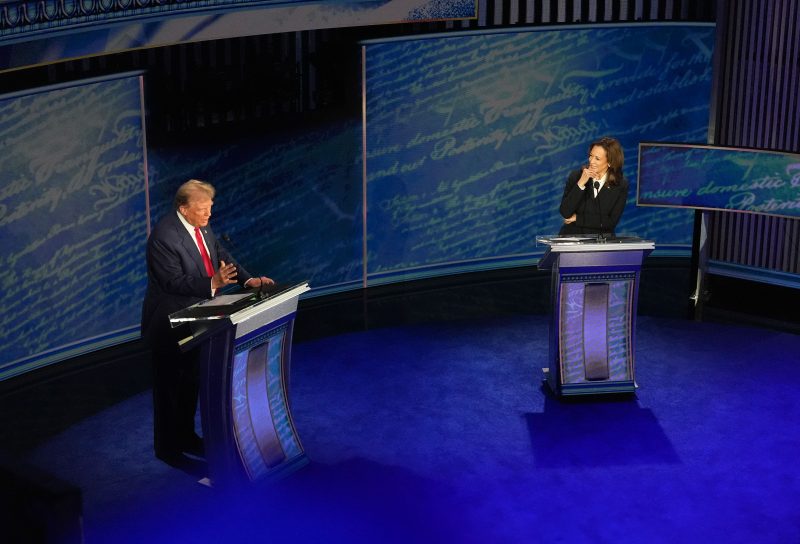
Clash of Titans: Harris vs. Trump on Foreign Policy in Debate Showdown
In the recent presidential debate, Vice President Kamala Harris and former President Donald Trump shared their perspectives on foreign policy, highlighting various approaches and priorities. Let’s analyze their responses to key foreign policy questions.
Harris emphasized the importance of building alliances and reestablishing trust with key international partners, such as NATO. She highlighted the need for multilateral cooperation in addressing global challenges like climate change and pandemics. By focusing on diplomacy and collaboration, Harris presented a vision of the United States as a responsible global leader committed to working with allies to promote peace and security.
In contrast, Trump’s approach centered on prioritizing American interests, advocating for a more unilateral foreign policy stance. He underscored the significance of securing favorable trade deals and ensuring that other countries contribute their fair share to mutual defense agreements. Trump’s emphasis on America First reflected a belief in asserting national sovereignty and pursuing policies that directly benefit the United States.
One key divergence in their responses was evident in how they viewed the role of the United Nations. Harris expressed support for the UN as a vital forum for addressing global challenges and promoting human rights. She advocated for strengthening international institutions to better tackle transnational issues. On the other hand, Trump criticized the UN for inefficiency and bias, questioning its effectiveness in upholding global security and advocating for reforms to ensure a more balanced approach.
Another notable difference was seen in their perspectives on relations with China. Harris emphasized the need for a strategic approach to managing the U.S.-China relationship, combining competition where necessary with cooperation on shared challenges. She called for robust engagement with China while also safeguarding American interests and values. In contrast, Trump took a more confrontational stance toward China, criticizing its trade practices and human rights record, and advocating for a tougher approach to protect American jobs and national security.
Overall, the debate between Harris and Trump highlighted contrasting visions for U.S. foreign policy, with Harris prioritizing diplomacy, multilateralism, and international cooperation, while Trump favored a more transactional and unilateral approach focused on advancing American interests. As voters weigh these differing viewpoints, the direction of U.S. foreign policy in the future will undoubtedly be shaped by the outcome of the upcoming election and the vision put forth by the winning candidate.
